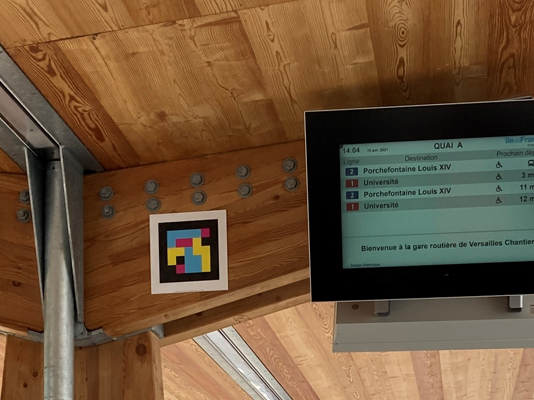With the aim of making public transport more inclusive and accessible, Keolis is trying out NaviLens technology in Versailles, in the Paris region, until July 2021 with a panel of visually impaired users.
This technology is being used for the first time in France along the itineraries that connect the platforms of Versailles-Chantiers station, operated by Transilien (SNCF), to the platforms of the bus station, operated by Keolis Versailles on behalf of Île-de-France Mobilités.
"Augmented" QR codes are placed along the itineraries, making it possible to guide the passengers throughout their journeys, identify approaching buses and provide schedules in real time.
